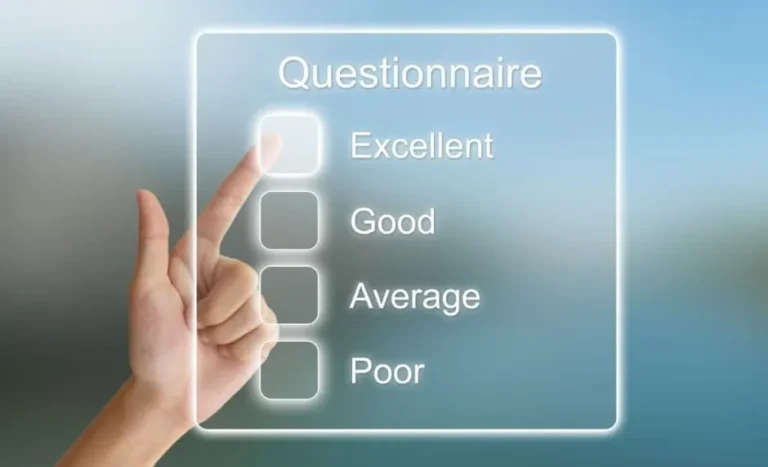Recently, we’ve had climate change rapidly and environmental issues become even more pressing, and it has become even more essential to understand what people think about climate change. We want to hear from people of all backgrounds – no matter where they live or what their circumstances are. That’s why we’ve put together detailed climate survey questions to get the right feedback.
These survey questions will help you explore a wide range of views, behaviors, and worries related to the climate.
Questions ranging from general work experience to safety, down to the impact of climate change, you’ll find suitable survey questions for your audience.
Table of contents
- What are Climate Survey Questions?
- Benefits of Climate Survey Questions
- How Do I Create a Climate Survey?
- Climate Survey Questions
- School Climate Survey Questions
- Climate Change Survey Questions
- Employee Climate Survey Questions
- Command Climate Survey Questions
- School Culture and Climate Survey Questions for Teachers
- What Do I Do with a Climate Survey?
- FAQs
- Conclusion
- References
- Recommendations
What are Climate Survey Questions?
Climate survey questions are questionnaires that ask people what they think and do about climate change and the environment. They cover different topics, like what you do at home to help the environment, what you know about climate change, how you feel about things like solar power or recycling, what you think about what the government is doing, and what environmental problems worry you the most.
These questions help gather a whole picture of what people think and feel about climate change and what they’re doing about it.
They’re important because they help us understand how everyone sees the problem and what we can do to solve it together. For instance:
- Personal Environmental Practices: These questions assess individual behaviors regarding energy consumption, waste management, transportation choices, and water usage.
- Awareness of Climate Science: These questions gauge respondents’ knowledge about climate change science, its causes, impacts, and potential solutions.
- Attitudes Towards Sustainable Technologies: These questions explore opinions on renewable energy sources, eco-friendly products, and green technologies.
- Perceptions of Governmental Action: These questions evaluate individuals’ views on government policies, regulations, and initiatives addressing climate change.
- Concerns and Priorities: These questions identify the most pressing environmental issues for respondents and their level of concern about them.
Benefits of Climate Survey Questions
Climate survey questions are really helpful because they let us know what people think about climate change and the environment. This helps governments, researchers, and groups make decisions and policies that match what people want.
By asking lots of questions about climate stuff, we can make better choices based on facts. These questions also show where people might not know enough about climate change, so we can teach them more.
We can keep asking these questions over time to see if people’s opinions change. When we involve everyone in answering these questions, like people in neighborhoods, businesses, and governments, we can all work together better.
The answers from these surveys help make rules and plans that are fair and make sense. Plus, they make sure everyone knows what’s happening and who’s doing what to help the environment.
How Do I Create a Climate Survey?
Making a climate survey is like putting together puzzle pieces to understand what people think about climate change. Here’s how you can do it:
- Figure Out What You Want: First, know what you’re looking for. Do you want to know how people feel, what they do, or what they believe about climate change?
- Pick How You’ll Ask: Decide if you’ll ask people online, over the phone, face-to-face, or with paper forms. Online surveys are usually easier and cheaper.
- Think of Questions: Come up with questions that match what you’re after. Make sure they’re easy to understand, short, and fair. Use different types, like multiple-choice or open-ended, to get a variety of answers.
- Sort Your Questions: Group similar questions together, like asking about habits or what people think about government actions.
- Test It Out: Before you start asking everyone, try your survey in a small group. This helps you fix any confusing questions.
- Make It Final: Take feedback from the test and make changes. Then, your survey is ready to go.
- Choose How to Ask: Pick a tool, like a website or app, to ask your questions. There are lots of options online, like SurveyMonkey or Google Forms.
- Get It Out There: Send your survey to the right people. You can email it, share it on social media, or give it to community groups or local governments.
- Keep Track: Watch as responses come in and make sure everything’s going smoothly. Set a deadline so everyone gets their answers in on time.
- Look at What You’ve Got: Once all the answers are in, use a computer to check them out. See if there are any trends or patterns that tell you something about what people think about climate change.
- Figure Out What It Means: Use the answers to understand what people think and feel about climate change. How do their actions and beliefs line up with what you wanted to know?
Climate Survey Questions
- How satisfied are you with your overall experience in this organization/school/workplace?
- Do you feel valued and appreciated by your peers and supervisors?
- How safe do you feel in your environment?
- Are you satisfied with the communication channels within the organization?
- How well does the organization promote diversity and inclusion?
- Are you provided with opportunities for professional growth and development?
- How would you rate the level of teamwork and collaboration within your team/department?
- Do you feel that your opinions and feedback are heard and considered?
- How satisfied are you with the resources and tools provided for your work/studies?
- Are you satisfied with the work-life balance in your organization?
- How well does the organization recognize and reward employee contributions?
- Are you satisfied with the level of transparency and accountability within the organization?
- How effectively does the organization address conflicts and disputes?
- Do you feel that your workload is manageable?
- How supported do you feel in expressing your ideas and creativity?
- Are there opportunities for social interaction and bonding with colleagues/peers?
- How well does the organization support employee/student well-being and mental health?
- How satisfied are you with the leadership and direction of the organization?
- How likely are you to recommend [organization/school/workplace] as a great place to work/study?
- What suggestions do you have for improving the overall climate and culture within the organization?
School Climate Survey Questions
- How safe do you feel at school?
- Do you feel respected by your teachers and peers?
- Are you satisfied with the cleanliness and upkeep of school facilities?
- Do you feel comfortable discussing your concerns with school staff?
- How would you rate the level of diversity and inclusion at our school?
- Are there clear rules and expectations for student behavior at our school?
- How often do you experience bullying or harassment at school?
- Are there enough opportunities for students to get involved in extracurricular activities?
- Do you feel supported by school staff in achieving your academic goals?
- How well do you think teachers manage classroom behavior?
- Are you satisfied with the availability of resources and materials for learning?
- Do you feel that your cultural background is valued and respected at school?
- How often do you witness acts of kindness or positive behavior among students?
- Are there adequate channels for students to voice their opinions and concerns at school?
- Do you feel that your school provides a supportive and inclusive learning environment for students with diverse needs?
- How would you rate the overall sense of community and belonging at our school?
- Are there opportunities for students to participate in decision-making processes at school?
- How well do you think teachers communicate with students and parents/guardians?
- Do you feel prepared for college, career, and life after high school?
- How would you rate your overall satisfaction with your school experience?
Climate Change Survey Questions
- How concerned are you about the impact of climate change on the environment?
- Do you believe that human activities contribute to climate change?
- How well do you understand the science behind climate change?
- How often do you engage in behaviors to reduce your carbon footprint (e.g., recycling, using energy-efficient appliances)?
- How confident are you in the ability of governments to address climate change effectively?
- Are you aware of the potential consequences of climate change on biodiversity and ecosystems?
- How likely are you to support policies aimed at reducing greenhouse gas emissions?
- How important do you think it is for businesses to adopt sustainable practices to combat climate change?
- Do you believe that renewable energy sources (e.g., solar, wind) should replace fossil fuels?
- How concerned are you about the impact of climate change on future generations?
- Are you aware of the role that deforestation plays in contributing to climate change?
- How well do you think individuals can mitigate the effects of climate change through lifestyle changes?
- How informed do you feel about the potential solutions to mitigate climate change?
- Do you believe that international cooperation is necessary to address climate change effectively?
- How likely are you to support investments in research and development of clean energy technologies?
- How confident are you in the accuracy of climate change predictions made by scientists?
- How important do you think it is for communities to adapt to the effects of climate change (e.g., sea-level rise, extreme weather events)?
- Are you aware of the impact of climate change on global food security?
- How likely are you to engage in advocacy or activism related to climate change?
- What actions do you believe individuals, communities, and governments should take to address climate change effectively?
Employee Climate Survey Questions
These questions cover various aspects of the employee experience, including job satisfaction, communication, leadership, organizational culture, diversity and inclusion, and overall engagement.
- Do you feel valued and appreciated by your organization?
- How satisfied are you with your current workload and job responsibilities?
- Do you feel supported by your manager/supervisor?
- Are you provided with opportunities for professional development and growth?
- How well does your organization communicate goals, objectives, and changes?
- Do you feel that your opinions and feedback are heard and considered?
- How would you rate the level of teamwork and collaboration within your department/team?
- Are you satisfied with the compensation and benefits offered by your organization?
- How effective is the performance feedback and evaluation process in your organization?
- Do you feel that your organization promotes a healthy work-life balance?
- How would you rate the overall morale and motivation of employees in your organization?
- Are you satisfied with the workplace environment and facilities?
- Do you feel that your organization values diversity and inclusion?
- How well does your organization handle conflicts and disputes among employees?
- Are you provided with the necessary resources and support to perform your job effectively?
- How well does your organization recognize and reward employee contributions?
- Do you feel that your organization is committed to employee well-being and mental health?
- How satisfied are you with the overall leadership and direction of your organization?
- Are you proud to be associated with your organization?
- How likely are you to recommend your organization as a great place to work to others?
Command Climate Survey Questions
Command climate surveys are used to assess the organizational climate and leadership effectiveness within a military unit or other hierarchical organizations
- How would you rate the overall leadership within your unit/command?
- Do you feel that your immediate supervisor treats all personnel fairly and with respect?
- How well does your unit/command foster a climate of mutual trust and respect among team members?
- Are you satisfied with the communication channels and flow of information within your unit/command?
- How effectively does your unit/command address issues of discrimination, harassment, and equal opportunity?
- Do you feel supported by your chain of command in achieving your professional goals and objectives?
- How well does your unit/command promote a culture of accountability and responsibility?
- Are you satisfied with the training and development opportunities provided by your unit/command?
- How well does your unit/command support the well-being and morale of its personnel?
- Do you feel that your unit/command promotes a healthy work-life balance?
- How well does your unit/command handle and resolve conflicts and disputes among personnel?
- Are you provided with the necessary resources and equipment to perform your duties effectively?
- How well does your unit/command promote diversity and inclusion?
- How satisfied are you with the leadership’s responsiveness to personnel concerns and feedback?
- Do you feel that your unit/command effectively promotes a culture of safety and risk management?
- How well does your unit/command recognize and reward outstanding performance and contributions?
- Are you satisfied with the level of mentorship and support provided by senior leaders within your unit/command?
- How well does your unit/command promote teamwork and collaboration among personnel?
- Do you feel that your unit/command effectively prepares personnel for deployment or operational missions?
- What suggestions do you have for improving the command climate and leadership effectiveness within your unit/command?
School Culture and Climate Survey Questions for Teachers
- How supported do you feel by school administration in carrying out your teaching responsibilities?
- Do you feel respected and valued by your colleagues?
- How safe do you feel in the school environment?
- How well do school policies and procedures support a positive school culture?
- Are you satisfied with the level of communication between teachers and administrators?
- How effectively does the school address issues related to diversity and inclusion?
- How supported do you feel in your professional growth and development?
- How well does the school promote collaboration and teamwork among teachers?
- Do you feel that your opinions and ideas are heard and respected by school leadership?
- How satisfied are you with the resources and materials provided for teaching?
- How well does the school handle disciplinary issues and maintain classroom management?
- Do you feel that your workload is manageable and reasonable?
- How well does the school support teacher well-being and work-life balance?
- How effectively does the school promote a sense of community and belonging among teachers?
- Are there opportunities for teachers to participate in decision-making processes at the school?
- How satisfied are you with the overall school culture and climate?
- How well does the school recognize and celebrate teacher accomplishments and contributions?
- How well does the school address conflicts and disputes among staff members?
- How supported do you feel in implementing innovative teaching practices?
- Do you feel that your professional concerns and challenges are adequately addressed by school leadership?
- How satisfied are you with the level of parental involvement and support?
- How well does the school provide opportunities for teacher collaboration and professional learning communities?
- How well does the school foster a culture of continuous improvement and growth?
- Are there any additional comments or suggestions you would like to share about the school culture and climate?
Read This: 35+ Post-Webinar Survey Questions You Must Ask for Quality Feedback
What Do I Do with a Climate Survey?
After you’ve done a climate survey, here’s what to do with the data:
- Look at the Data: Check out the survey answers carefully to see what they tell you. Find any patterns or things that need attention.
- Find Important Stuff: Figure out the most important things you learned from the survey. This could be where things are going well or where things need to get better.
- Tell People: Share what you found with the right people, like bosses or other folks in charge. It’s important to be open about what you learned to build trust.
- Make a Plan: Decide what to do next based on what you found in the survey. Set clear goals and steps for making things better.
- Get People Involved: Give tasks to the right people to make sure the plan happens. Make sure everyone knows what they need to do and when to do it.
- Make Changes: Start doing the things you planned to make improvements. This might mean changing rules, training people, or making other changes.
- Check How It’s Going: Keep an eye on how things are going. See if the changes are working like you hoped. If they’re not, figure out what needs to change.
- Ask for More Ideas: Keep asking people for their thoughts. They might have more ideas for making things better that you didn’t think of.
FAQs
Many climate surveys are designed to be anonymous to encourage honest feedback from participants. Anonymity helps ensure that respondents feel comfortable sharing their opinions without fear of repercussions.
Climate surveys can be administered through various methods, including online surveys, paper surveys, phone interviews, focus groups, or a combination of these approaches. The method chosen depends on factors such as accessibility, confidentiality, and the preferences of participants.
Climate surveys can be conducted by organizations, educational institutions, government agencies, non-profit organizations, or consulting firms.
Climate surveys may cover a wide range of topics, including organizational culture, leadership effectiveness, communication, diversity and inclusion, job satisfaction, work-life balance, safety, and wellness.
Yes, climate surveys can be customized to address the unique needs and priorities of different organizations or communities. This may involve tailoring survey questions, format, frequency, and analysis methods to align with specific goals and objectives.
Conclusion
Where climate change affects everyone, climate survey questions are super important. They give us valuable information that helps organizations, communities, and leaders make smart choices about what to do next.
These surveys hold the key to a world where we take climate change seriously and work together for a better, greener future. Each question and answer helps us get closer to a future where we take care of the planet, make strong communities, and treat everyone fairly.
References
- HR-Survey.com – Employee Climate Surveys with examples
- Heflo.com – 25 Organizational Climate Survey Questions
- Smartsurvey.co.uk – Employee Climate Survey Template





